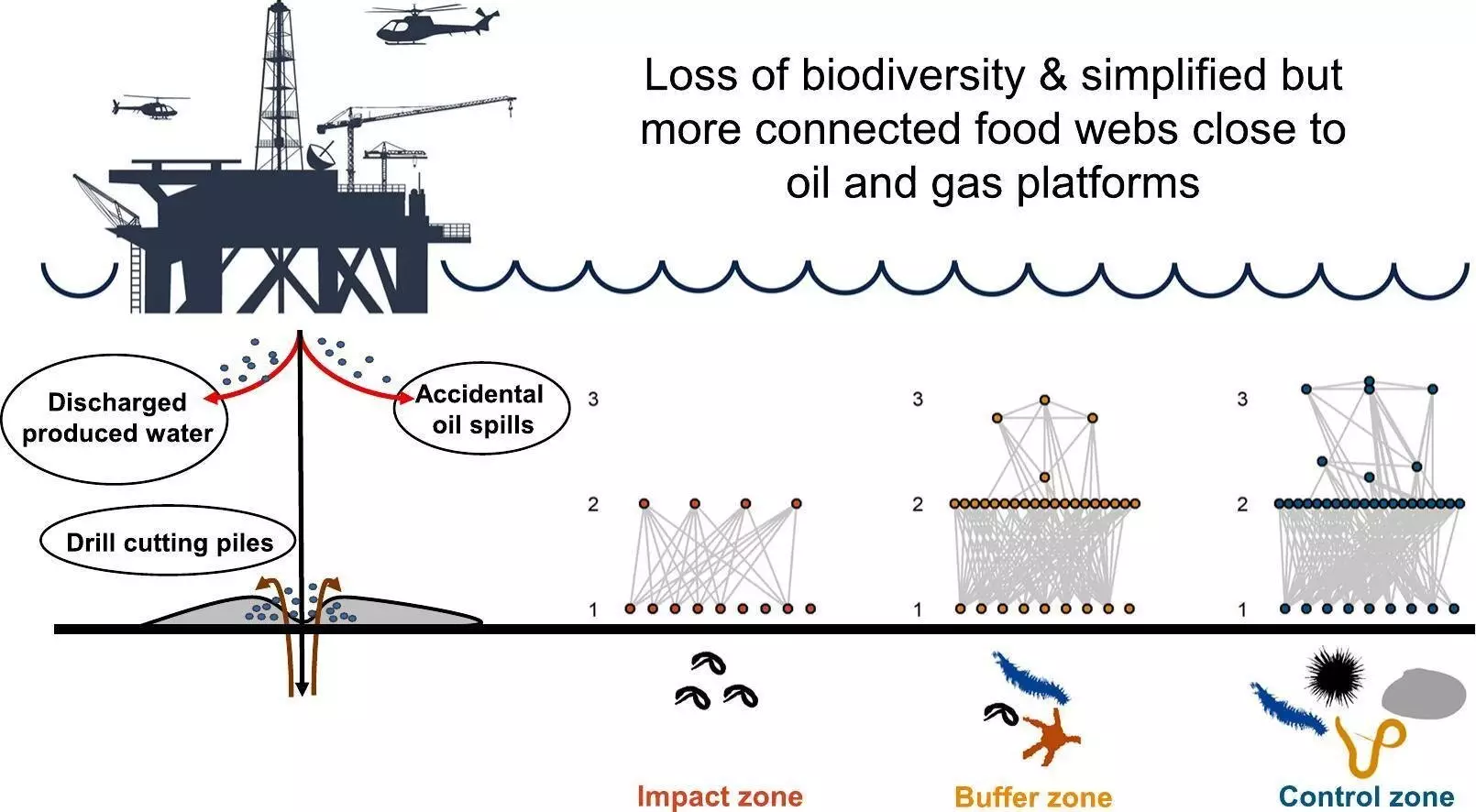A groundbreaking study conducted by a collective of researchers from the University of Essex, the Natural History Museum, and the Center for Environment, Fisheries and Aquaculture Science (CEFAS) has unearthed unsettling findings regarding the ecological impact of oil and gas extraction in the North Sea. The study indicates that pollution levels in marine environments can surge by over an astonishing 10,000% within just half a kilometer from offshore drilling platforms. This increase in pollutants is not merely a statistic; it translates into a dramatic near-30% decline in species richness around these extraction sites, placing the health of Britain’s marine ecosystems in jeopardy.
The research, documented in the “Science of The Total Environment,” has reached critical conclusions at a time when fossil fuel exploration is intensifying globally. While the environmental implications of these operations have been acknowledged for years, this study provides fresh and compelling evidence showcasing the stark realities that lie beneath the surface of oil extraction activities.
Quantifying Environmental Destruction: The Data Exposed
The staggering figures reported highlight the environmental toll that oil extraction takes on the marine ecosystem. Pollutants, mainly hydrocarbons, were found to be an astonishing 10,613% higher in the contaminated zones than in pristine, unaffected areas. Furthermore, heavy metals such as lead, copper, and nickel were present in concentrations that were 455% greater within this polluted perimeter. Such levels of contamination do not arise overnight; they represent decades of accumulated neglect towards the ecosystems that sustain our oceans.
This analysis included data on 4,216 marine species collected from 1981 to 2012, across nine significant offshore oil and gas platforms dotting the coasts of Scotland and England. The implications of such findings are dire—species decrease was accompanied by the deterioration of food webs, leading to a more straightforward and less resilient ecosystem structure. As larger predators like starfish vanished near these deposit platforms, only smaller, more hardy organisms could adapt to the harsh environments created by centuries of anthropogenic influence.
The Disturbing Trends in Marine Food Webs
The predominantly negative trends found in the marine food webs are a vital aspect of this study. As biodiversity diminishes, the complexity of these ecosystems falls apart, resulting in foods webs that are not only simplified but also indicative of an ecosystem under substantial stress. The researchers, led by Ph.D. student Zelin Chen, meticulously categorized pollution impact zones and their effects on species before and after oil extraction commenced at these sites.
Chen’s findings are pivotal: a documented 28% decline in the variety of species—and a simplified tapestry of feeding interactions—attests to the fragility of these marine ecosystems, and as the number of connections within the food web shrinks, the overall productivity of these areas plummets. Dr. Eoin O’Gorman from the University of Essex encapsulates this concern perfectly, noting that shorter food chains lead to less productive marine habitats.
A Call for Responsible Industry Practices
In light of these revelations, the urgency for a paradigm shift in decommissioning practices and ongoing oil and gas operations could not be more pronounced. Dr. Natalie Hicks points out that many of these platforms are approaching the end of their operational life; hence, the industry must act prudently to mitigate long-lasting environmental damage. Decommissioning should not be merely a regulatory box-ticking exercise; it must be a process informed by robust scientific understanding and ecological principles.
As the world looks to the oceans as critical components in climate change mitigation efforts, the importance of preserving their health cannot be overstated. Collaboration among government, academia, and industry is essential to discern sustainable paths forward. Protecting the ocean signifies protecting our future, an endeavor that must drive urgent action and extensive reform in oil industry practices.
Reevaluating Our Relation to Marine Environments
This study’s implications extend beyond just the immediate environmental consequences presented; they reach into the realm of public consciousness regarding our responsibilities towards the oceans. It calls into question the often-unquestioned reliance on fossil fuels and compels a deeper reflection on our modern-day ecological interactions. Can society continue to prioritize oil and gas extraction over the lengthy survival of our marine ecosystems? The evidence plainly suggests that the answer should be a resounding no, as the ecological legacy of these platforms is anything but promising.
The insights gathered from this extensive research shine a spotlight on a pressing dilemma we cannot afford to ignore. The health of our oceans, which are among our planet’s most vital resources, is increasingly endangered by traditional extraction practices that harm rather than heal. A sustainable approach to marine resource management is not just desired; it is essential for fostering the diverse life forms that inhabit our oceans and, by extension, for our survival on this planet.

